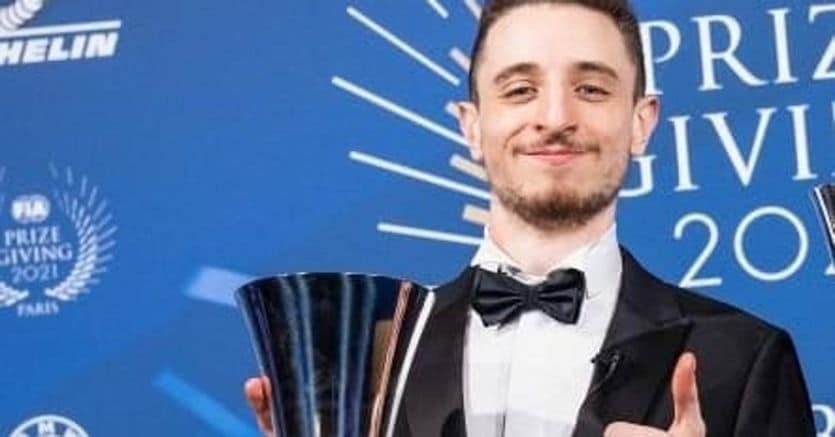alerio Gallo is 21 years old, he works and studies Languages at the University and when he grew up he wanted to be a driver, but the real one became the first Italian to win the Nations Cup, the Gran Turismo world championships, the Playstation racing video game. Which is not bad, indeed, “it was beautiful – he hastens to point out – but I certainly didn’t get rich like other successful eSports influencers”. Still, sim-racing that is videogame car racing is no less complicated than Fortnite and other games. 32 competitors representing 18 different countries competed in the Nations Cup World Finals, which were held in December. Valerio Gallo trains every day. But there are eSports and eSports and not all Pro Players are the same, just like in the real world.
For example, Giorgio Calandrelli (aka Pow3r) was born in 1992 in Ostia. He has nearly two million followers on Twitch and 1.3 million on his YouTube channel. He mainly plays Fortnite, but also Valorant, Call of Duty: Warzone and Apex Legends. He has already published an autobiographical book, “Io sono Pow3r”, he is an Adidas athlete and ambassador for Vodafone. And he is the most famous streamer in Italy. The oldest and most successful Italian pro player is Alessandro Vallone, World Champion with more than 30 international podiums. He is co-founder of Faceit, a consultant and received the keys to the city from the mayor of Andora. Like Pow3r they started very young and became entrepreneurs of their own. In eSports, a Pro Player’s first step is often to win a competition. Kyle “Bugha” Giersdorf at the age of 16 won 3 million dollars in the first Fortnite World Cup in 2019. It amazes the increasingly low age of these champions that to participate in similar tournaments, in which there are often millionaire prizes up for grabs , they have to get ready day and night in front of the computer. Most tournaments have a minimum of 16 years to participate.
In the case of teams, the contract is between the company and the minor’s parents. In competitions open to all, as in the case of the Fortnite World Cup, the prizes are taxed in the country of origin and the athlete “collects” the win directly. As with Gen Z influencers, tiktokers who dance, and all teens who start saying things, playing games, or showing products in front of a camera, these careers often begin when you are not yet of legal age.
When certain figures are circulating it is no longer just fun but work. «We need legislation that addresses the great issue of young people who become active workers on the network and who do not have adequate protection. Before placing a child in a commercial context – observes Ernesto Caffo, president of Telefono Azzurro -, rules and protection systems are necessary ».
